Oriol Casals Madrid is not only one of Spain’s leading cannabis activists, he’s also the top cannabis lawyer in Barcelona. As the director of the alternative-defense law firm Casa Paraula, and the founder of drug law and research dissemination organization Observatorio Civil de Drogas, Oriol has been instrumental in keeping the Spanish cannabis industry alive and healthy. But he’s also come a long way; from getting busted with Moroccan hashish at the age of 18, to defending the rights of cannabis supporters in parliament today, Oriol’s work in the hemp and marijuana industry is constantly evolving.
Early Years
Oriol was first introduced to hash while he was a member of a rock band in 1992. Not long after, a police road block resulted in harassment and admonishment after officers discovered a few grams of Moroccan hash in his pocket. Undeterred, Oriol looked to quickly move on from the Spanish cultural norm of hashish; he’d been turned on to Mexican marijuana by some friends, and he wanted to grow his own.
Using florescent lights, Oriol launched his first of several small grow operations, and quickly fell in love with cannabis.
“I discovered the love of growing plants,” he said, “and the marijuana flowers were like something magical to me.”
Oriol made all the typical rookie mistakes of growing marijuana; he used unknown seed stock, grew with weak lamps, and cured his buds in a conventional kitchen oven. But he shared these experiences and his homegrown bud with friends and associates, and his networks grew.
Macarena Club
In 2001 Oriol opened a small dance club that would soon become world-famous. Macarena was (and still is) an electronic music club located in Barcelona’s Gothic Quarter. Oriol ran the club at night while studying law at the University in Barcelona during the day.
The club quickly became popular, drawing in as regulars the writing and editing staff of Canamo magazine, who often rubbed elbows with Oriol. Canamo would go on to become one of Spain’s most important cannabis publications, and their presence in the club attracted big names in the cannabis industry.
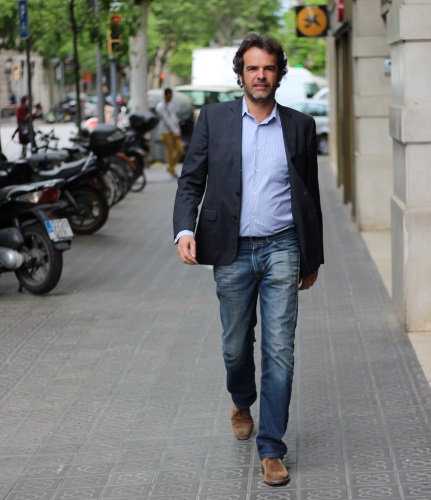
When Howard Marks arrived at the club that night, Oriol didn’t know who the man was, but by the end of the visit, Oriol and his partner Marti, also a law graduate, resolved to open a law firm dedicated to helping people fight for cannabis justice.
First Act of Protest
They called the law firm DMT Lawyers, after one of the world’s most powerful hallucinogens, dimethyltryptamine. Oriol and Marti began defending clients accused of drug crimes. They also began working with Spain’s burgeoning private cannabis social club industry. In fact, there was so much demand for DMT’s services that Oriol soon had to quit his role at Macarena to focus on working with people in the cannabis and other alternative industries.
I stopped Oriol at this point in the interview to get an understanding of when his cannabis activism work began in relation to when his professional work in the field began.
“So, what was your first act of protest?” I asked him, “What was your first moment of activism?”
“Opening a law firm,” Oriol responded simply, shrugging his shoulders.
Opening this law firm was my first and best act of protest.
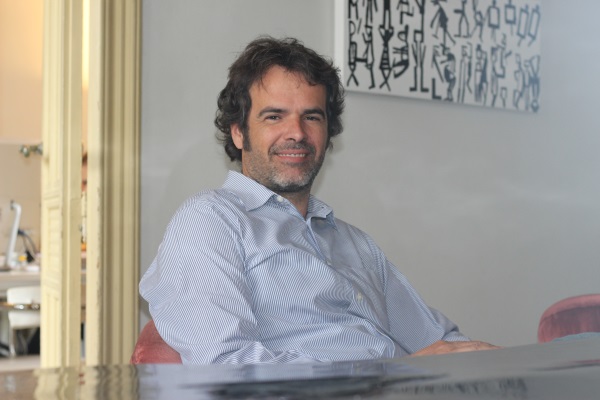
Over the next few years, Oriol and his partner Marti tested the cannabis laws – or lack thereof – in Spain, focusing on applying pressure to the government of Catalonia, where DMT was based. They launched old-school DDOS-style attacks by flooding administration officials with hundreds of cannabis club license requests, until the city of Barcelona relented and issued licenses for a brief time in 2014. DMT Lawyers researched statutes and looked for opportunity to create precedent, and eventually started developing Articles of Association for smoker’s clubs that pushed the legal boundaries.
Rasquera
In 2012, a small town called Rasquera shocked local authorities and world media outlets when the Mayor announced plans to collaborate officially with a large-scale marijuana plantation. The idea was to create jobs and income for the town by working with a cannabis club in Barcelona, ABCDA, in a project to grow cannabis for the club’s 5,000 members.
The Rasquera project was approved by the town and set into motion; the mayor alerted the regional government and the police, and the cannabis movement gasped at the complexity and brazenness of the operation.
Oriol was one of the principle attorneys who helped write the original plan for Rasquera, but although the town is still fighting to assert its sovereignty, the cultivation project is not operational as of April 2017. Court cases and lawsuits have stymied the Rasquera project, for now.
“I hope that one day, we can move forward in Rasquera,” Oriol said.
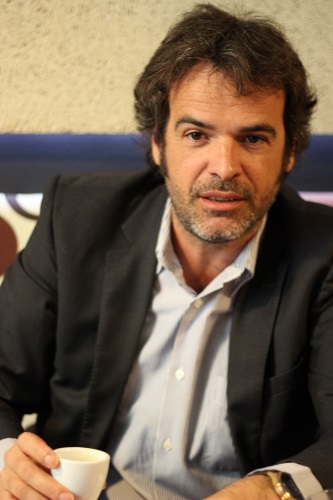
Oriol’s next major activism came when he co-founded Observatorio Civil de Drogas (Civilian Drug Observatory) and began publishing materials at www.ObservatorioCivil.org. These materials include transcripts and other official court documents and rulings, videos and articles, as well as statistics and case studies. The mission of Observatorio Civil de Drogas is to inform the public and act as a repository of information about law and cases related to cannabis and other drugs as part of a system of checks and balances.
La Rosa Verde
In 2015 Oriol began spearheading the LaRosaVerde initiative, which sought to collect 50,000 signatures for a petition to Catalonia’s Parliament. The petition sought to create regulations for cannabis clubs and collectives and define rules for their operation. With an outpouring of assistance from the cannabis industry in Catalonia, 67,000 signatures were collected; enough to legally force Parliament to consider the proposition of law, even though administration officials rejected nearly 12,000 of the original signatures.
The LaRosaVerde petition was first presented to Catalonia’s Parliament in March 2015, but the vote was pushed back repeatedly. Finally, in July 2016, Parliament voted to move the proposition of law forward with 90% in favor. During the remainder of the year, LaRosaVerde presented more than 30 experts to testify before Parliament about cannabis and its use.
As of April 2017, the LaRosaVerde petition is in an exhaustive final stage of amendment writing, editing, and approvals. More than 120 amendments to the original bill have been added since 2015, requiring fierce negotiations and counter-measures to ensure the petition doesn’t stray from its original goals.
Oriol’s work with the LaRosaVerde project is completely pro-bono. He meets with Parliament at least once or twice per week to discuss the amendments and other issues of the bill, and he has spent hundreds of hours working with people from all sides of the issue. When I asked him why he does all of this, he answered;
“Listen, we need to move this forward,” Oriol waved his hand in a large circle, as if to encompass the entire issue in one sweep of his arm, “lives are hanging in the balance.”
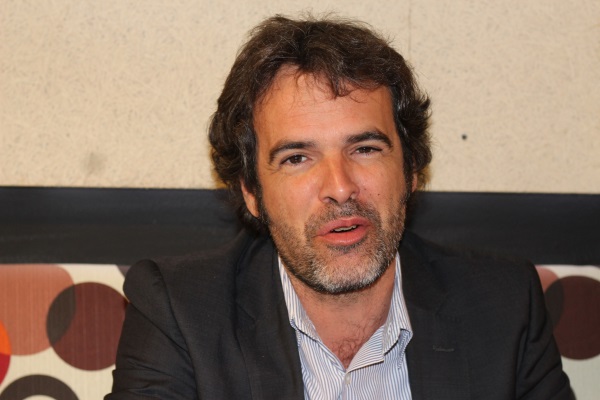
Philosophy and activism aside, Oriol is a successful cannabis attorney. On the streets and in the halls of most cannabis clubs, it’s widely known that if you want to stay out of trouble in the cannabis or related industries in Catalonia, you hire Oriol Casals Madrid. In fact, when the Board of La Mesa cannabis club – the top club in Barcelona at the time – was sentenced to 5 years in prison in 2016, it was Oriol who subsequently got the ruling annulled and a new trial granted. And when cannabis clubs get shut down unfairly, it’s often Oriol who helps them safely open again.
But Oriol’s interest in alternative law defense isn’t just coming from the standpoint of an activist or an attorney. For him, it’s a personal interest. That’s because Oriol believes that Spain’s 1967 law forbidding (but oddly not punishing) consumption of drugs is against the country’s Constitution, which was written in 1978. Essentially, Oriol believes that everyone has the right to get high.
“Getting stoned is a part of the constitutionally-protected freedom of personality.” Oriol beat his fist slightly on the table to accentuate his point. “The anti-drug law of 1967 is a violation of the Constitution.”
~Here’s to hoping that he’s right.
[Author’s Note: The narrative in this article was developed based on information provided during lengthy interviews with the subject, as well as interviews with other industry figures who independently corroborated and verified claims made.]
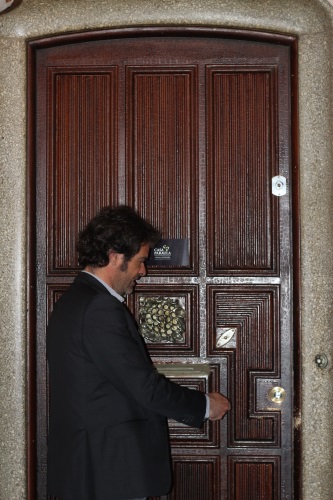
- Barcelona Cannabis Club Review: Green Age - March 23, 2022
- Things to do after Smoking Weed in Barcelona - March 2, 2022
- 9 Things You Need to Know about Cannabis Clubs in Madrid - February 15, 2022


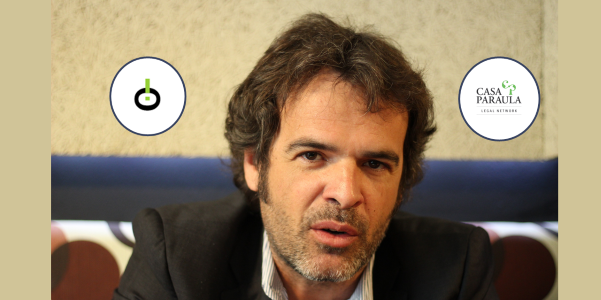
1 thoughts on “Interview with Oriol Casals Madrid – Spain’s Top Cannabis Attorney-Activist”
Oriol is an excellent attorney but he leans much more to the criminal side of cannabis in Spain. Nadja Vietz is the go-to cannabis business lawyer in Barcelona.